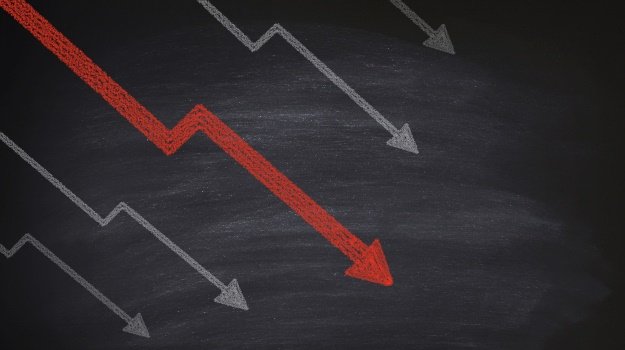

Africa’s forecast of 2.4% growth for the year has been dealt a deathblow by the global Covid-19 coronavirus pandemic.
Albert Zeufack, the World Bank’s chief economist for Africa, delivered a startling assessment on Thursday that conservative estimates are for a -2.1% contraction, though it may well be possible that the real number could be a -5.1% contraction in the continent’s growth, which will plunge sub-Saharan Africa into its first recession in 25 years and push economies back to war-time levels.
The world is facing the deepest recession since World War 2, and this could generate a significant food crisis in Africa
Albert Zeufack, the World Bank’s chief economist for Africa
Zeufack said this would have a massive impact, particularly on welfare, with the standard of living for many declining significantly.
Feeding the declining growth is an expected -7% contraction in agricultural output, coupled with a staggering -25% decline in food imports.
“These are unprecedented times. The world is facing the deepest recession since World War 2, and this could generate a significant food crisis in Africa,” Zeufack said.
The crisis will have four areas of major impact:
* Trade channels must, if possible, be kept open at all costs as the disruption in the value chain and commodities could be devastating.
* Financial flows have been disrupted, and these should be normalised as soon as possible. Zeufack specifically referenced capital outflows and the negative effect this will have on the continent’s remittances from the diaspora. This could have a continent-wide effect as money transfers slow to a trickle, placing many livelihoods at risk.
* The direct health channel, which affects how many people are sick.
* The disruption of economic activity and the resultant rise in unemployment are very real issues.
Governments must also work with the private sector and suggest wage subsidies to prevent mass layoffs
Albert Zeufack
“The collapse in the global oil price and the slump in commodity exports will affect Africa deeply. Angola, for example, which budgeted for an oil price average of $55 [R984] a barrel for the year, has suddenly seen a 60% decline in revenue as the price hovers at about $25 a barrel. Oil producers are in crisis. The continent’s three largest economies – Angola, South Africa and Nigeria – are all oil or commodity dependent,” Zeufack said.
“In these counties, economic growth was already fragile. South Africa, for example, was already in recession. For these countries, growth could be as much as -7% for the year as Covid-19 compounds existing problems.
“For those African countries that have fast-growing economies, such as Ghana, Ethiopia, Ivory Coast and Rwanda, the outlook is also grave, with growth seen dipping to below 2%. Even with positive growth, their economies are too marginal to have an impact on the continental decline.”
When asked how the typical African family would be affected, Zeufack said no one in the world was prepared and that most governments were struggling as they were working with so many unknowns.
“Governments must take measure in the right direction and support the informal business sector” to prevent the explosion of unemployment.
In particular, governments need to prevent a sudden halt of economic activity, and must ensure cash transfers are possible and maintain food distribution.
“Governments must also work with the private sector and suggest wage subsidies to prevent mass layoffs. The delay in certain taxes and basic service fees are also mechanisms that can be used to mitigate the economic fallout and allow economic activities to continue,” Zeufack said.
“Ultimately, though, policy response should reflect the needs of the country’s economy.”
We have not yet seen the peak in Africa, and we must look and think ahead and build resilience in our future design
Albert Zeufack
Importantly, a collective response through organisations like the AU are a necessity. It would be more efficient than individual countries dealing with the crisis, and offers an opportunity to strengthen regional trade and manufacturing capability.
Zeufack also tackled the issue of country debt and lending, saying that sub-Saharan African countries do not have the fiscal policy space to adequately respond.
“This could be a major problem in countries – especially if they are oil and commodity dependent –where 70% of the budget is spent on the wage bill and servicing debt. The World Bank is looking at a standstill on debt servicing – a $40 billion deferment. For small businesses, it is vital to implement social protection measures for the informal sector and include stimulus measures that could help with cash transfers.”
When asked if there was a silver lining, Zeufack responded cautiously: “We have not yet seen the peak in Africa, and we must look and think ahead and build resilience in our future design.”
  |
|
